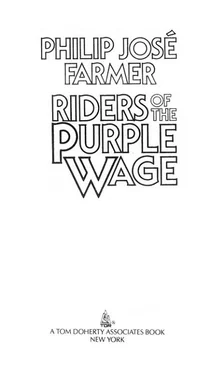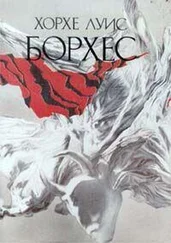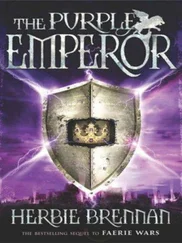“You’re extinct,” Charlie said. “A fly in amber still kicking because you don’t know you’re dead. Laura’d sooner eat a live cockroach than let you get into her pants.”
He stepped through the doorway and closed it while Ketcher yelled, “I’ll cut you when you come out, you white motherfucker!”
Sure you’ll cut me, Charlie thought. You know I just have to use Riches’s phone, and the troops stationed down on the corner will be up here. If they find the knife on you, you go straight to a prison work camp.
Though often in the family room, Charlie had now been admitted only because Riches had not heard his knock. One of the ten children living there had happened to be close to the door. He was optimist enough at the age of six to take the chocolate bar Charlie offered and not wonder what it was going to cost him later. But he slid the bar inside his urine-yellowed jockey shorts, his only garment, before his siblings caught sight of it.
Mrs. Dott answered his greeting with a scowl, and then stared straight at the screen.
Charlie, sighing, pulled three stapled sheets from his attaché case. This visit, he was required only to read to her Paragraph 3 from Form WD-GOSSR C-6392-T. Though he knew that Riches probably could not hear his voice above the blaring commercial or the shouting and screaming children, he did not care.
“‘…available to all American citizens (see Paragraph 5 for age, mental, and physical exceptions and restrictions) REGARDLESS OF RACE, GENDER OR RELIGION. Guaranteed free: any new 100% American-made automobile, motorcycle, or pickup truck with 100 gallons of gasoline or diesel oil or alcohol, ten quarts of motor oil, a year’s license plate, one year’s warranty (see Paragraph 4.d for exceptions) and casualty insurance (see Paragraph 4.e for exceptions and restrictions)…’”
Before he could get to the section dealing with the freedom of the government from lawsuits, Riches shrilled, “I told you time and again! Ain’t nobody gonna mess around with my body!”
She settled back in the stained, torn, and broken-springed sofa. Riches looks like a huge queen bee swollen with eggs, Charlie thought.
Despite the anger twisting her face, her gaze was fixed on the soap opera unfolding its story as slowly as the wings of a just-molted dragonfly.
Holy humping Jesus! Charlie thought. She’s borne sixteen children. Had clap three times. Syph twice. It’s a miracle she’s escaped AIDS. She doesn’t really understand the connection between sexual intercourse and venereal disease, though it’s often been explained to her. All those babies have drained the calcium from her bones, spiders sucking out the juice, leaving her toothless and with a widow’s hump.
Don’t mess around with her body?
Though he wasn’t going to change her mind, he had to make his request this final time, then report the failure. The big praying-mantis eyes of Junkers, his boss, would get deadlier and colder. He’d shout, “How you expect this office to keep up its quotas if you piss out on me?”
“Mrs. Dott,” Charlie said, “all but six in this building have signed up, and I’m sure most of those will eventually come through. You’re forty-five. The cutoff date is forty-six. Why throw all that money away? Chances are high you can’t have any more babies, anyway.”
Suddenly she looked smug and sly. Patting her anthill stomach, she said, “You think I be too old to have any more? Wrong, Charlie. Got me another. She got one, too.”
She pointed at thirteen-year-old Crystal, watching TV.
Her smile became even slier. “The law say Crystal can’t sign up with you goosers ’less I say she can till she fifteen. No way!”
She did not look at him as he walked away. Nor did she seem to notice that he was lingering by the door. The dusty wall mirror showed his light red hair and pale and grim face. The dark circles around his eyes looked like Sioux smoke rings signaling for help. His guts hurt as if wasp larvae had hatched inside him and were eating their way out.
Why? What he was doing was rational and humanitarian. It was not just for the good of the people as a whole, though it was that, too. It was also for the good of the people at whom the missions were directed, and it involved no force or cruelty, none that was apparent, anyway.
He saw a cockroach. Blatta orientalis, inevitable companion of dirt and colleague of poverty, scuttle out from beneath an end of Riches’s sofa. It seized a potato-chip fragment and shot back into the darkness under the sofa.
The piece contained an antifertility drug harmless to humans. Charlie thought that 99.9 percent of the cockroaches might be made infertile. But 0.1 percent would survive because they had mutated to resist the drug. From that would come billions.
He went into the hallway. Ketcher was alone with a youth, an obvious customer. Seeing Charlie, both went down the stairs. A faint acrid odor like battlefield smoke hung in the hall. Charlie felt as if he bad gone through a firefight. He was trembling slightly. The hallway with its garbage cans, its dusty light bulbs, and its hot, unmoving air seemed to shift a little. Somewhat dizzy, he leaned against the scabrous, once-green wall for support.
What he was doing was for the best. How many times had he told himself that? The welfare recipients were in an economic-social elevator, its cables cut, falling faster and faster, nothing but disaster at the bottom for them—and for all citizens, since what happens to a part always affects the whole. At the same time, their numbers were increasing geometrically, far out of proportion to the rest of the population. Misery, hopelessness, disease, malnutrition, violence, and deep ignorance were also expanding.
The Ronn-Eagan legislation had not passed without vehement, and even violent, opposition, especially from some religious groups. But the nonreligious reaction to the excesses of the last three decades of the previous century was very strong. And though the law had made already burdensome taxes much heavier, it did promise an eventual lightening of the tax load and a large reduction in the welfare populations. But the vehicle-making, insurance, and petroleum industries, and the businesses dependent on these, were booming.
Someday the welfare problem (which also encompassed a part of the crime-drug problem) would be a small one. Why, then, did he have these dreams in which he strode down a very narrow and twilit hallway with no end? The doors ahead of him were open, but he slammed them shut as he passed.
“Charlie Roth! A ghost among spooks?”
Only Rex Bessey used that greeting. He climbed up from the staircase on which Charlie ascended. His face was a full, dark moon. Then another moon, checked black and white, the vest covering his huge paunch, rose above the steps. He smiled as he limped toward Charlie.
“I got more than today’s quota. Those rednecks go apeshit over pickups. How you doing, Charlie?”
“Wasted too much time on Riches Dott, a hopeless case.”
“That asshole Junkers thought he was screwing us when he gave me the white area and you the black,” Rex said. “But when I remind those Neanderthal rednecks I played tackle for the Bears until I wrecked my leg, they get friendly. That makes me one of the good old boys even if I am a fucking nigger. What helps, I give them a few beers to soften them up.”
His attaché case clinked when he shook it.
“Why don’t you carry some beer, too?”
“Principles,” Charlie said.
Rex laughed loudly. “Sure! You practicing genocide, and you got principles?”
Charlie did not get angry. Once, when drunk, Rex had admitted that he fully agreed with the sterilization policy. He hated his job, but he wouldn’t like any work unless it brought in big money.
Читать дальше









![О Генри - Пурпурное платье [The Purple Dress]](/books/405339/o-genri-purpurnoe-plate-the-purple-dress-thumb.webp)

